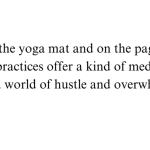Last Updated:
Compulsive sexual behaviour disorder involves an intense focus on sexual thoughts and behaviours that can’t be controlled.
People use CSBD to escape from problems in their life.
Compulsive sexual behaviour (CSB), often known as sex addiction or out-of-control sexual behaviour, refers to a persistent pre-occupation with sexual fantasies, urges, or actions that become difficult to control. This behaviour leads to significant distress and negative impacts on various aspects of life, including physical health, relationships, and overall well-being. Unlike a high sex drive, CSB is marked by an overwhelming sense of compulsion, where the individual feels unable to resist engaging in sexual activities despite the consequences.
This can involve a range of behaviours, including excessive masturbation, frequent engagement with pornography, multiple sexual partners, cybersex, or other sexual activities pursued in a repetitive and uncontrollable manner.
Let’s delve deep into the symptoms and treatment of compulsive sexual behaviours and surprising trends in men and women.
Compulsive Sexual Behaviours: Symptoms
- You experience frequent, intense sexual fantasies, urges, and behaviours that are unwanted and beyond your control.
- Sometimes you feel driven to engage in a particular sexual practice and get a release of tension but subsequently feel guilty or ashamed.
- Another symptom is that you have been unable to stop or control the fantasies and urges on your own.
- You use compulsive sexual behaviour to escape from problems in your life, such as loneliness, despair, or anxiety.
- You engage in risky sexual practices despite knowing that they can result in major consequences such as sexually transmitted infections, breakups, pregnancy, or legal issues.
Compulsive Sexual Behaviours: Treatment
- Talk therapy, also called psychotherapy, can help you learn how to manage your compulsive sexual behaviour.
- Book an appointment with a mental health provider: Get treatment for other mental health concerns like anxiety or depression, as they may make compulsive sexual behaviour worse.
- Alcohol and drug use can impair your judgment and put you in situations that may push you towards unhealthy behaviours.
- Find enjoyable activities you love to do at times when you experience strong urges or when you feel lonely.
- When you need support, reach out to loved ones you trust. Speak to your partner, a friend, or another trusted person about your experiences.
Shedding light on the same, a recent study published in Sexual Health & Compulsivity talks about some interesting patterns in how age, gender, sexual orientation, and religious beliefs shape perceptions of compulsive sexual behaviour disorder (CSBD). To better understand these dynamics, researchers surveyed more than 2,800 adults, close to 49 years of age.
For the research led by Joshua B Grubbs from the University of New Mexico, participants were asked if they felt their sexual behaviours were “addictive” or “out of control” to identify specific behaviours they found problematic.
Gender and Behaviour Differences
Around 11.8 percent of men were significantly more likely to express concerns about addiction than women, 3.4 percent. Men predominantly pointed to solitary habits such as pornography and masturbation as areas of concern.
Age and Generational Factors
Younger people expressed higher levels of concern regarding sexual behaviours. This could represent generational disparities in attitudes towards sexuality, impacted by increased exposure to digital platforms and shifting societal standards.
Impact on Sexual Minorities
Sexual minorities, particularly gay and bisexual males, were more likely to express concerns about compulsive sexual behaviour than heterosexuals. These differences may stem from particular societal pressures, personal expectations, or cultural framing of sexual activity in certain groups.
Religious Influences
Religious beliefs also played a significant role, as religious people were more likely to consider masturbation problematic. They were, however, less likely to express anxiety over casual sexual interactions, emphasizing the moral lens through which solitary behaviours are sometimes judged in religious contexts.
Addiction vs Lack of Control
Interestingly, participants distinguished between labelling their behaviours as “addictive” and “out of control.” Two-thirds of individuals with concerns used one word but not the other. Men, particularly heterosexual men, were more likely to describe their experiences as “addiction,” probably due to cultural narratives that associate masculinity with control.






